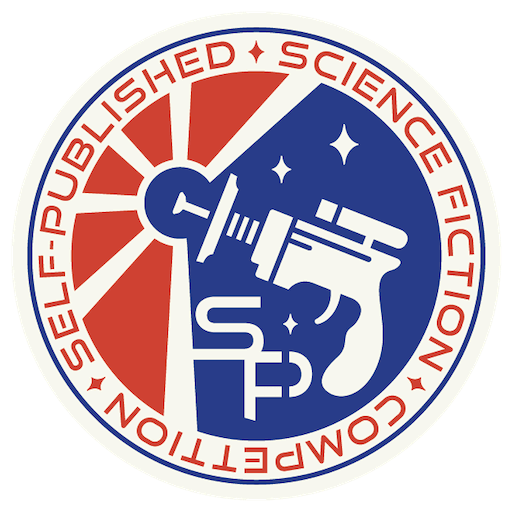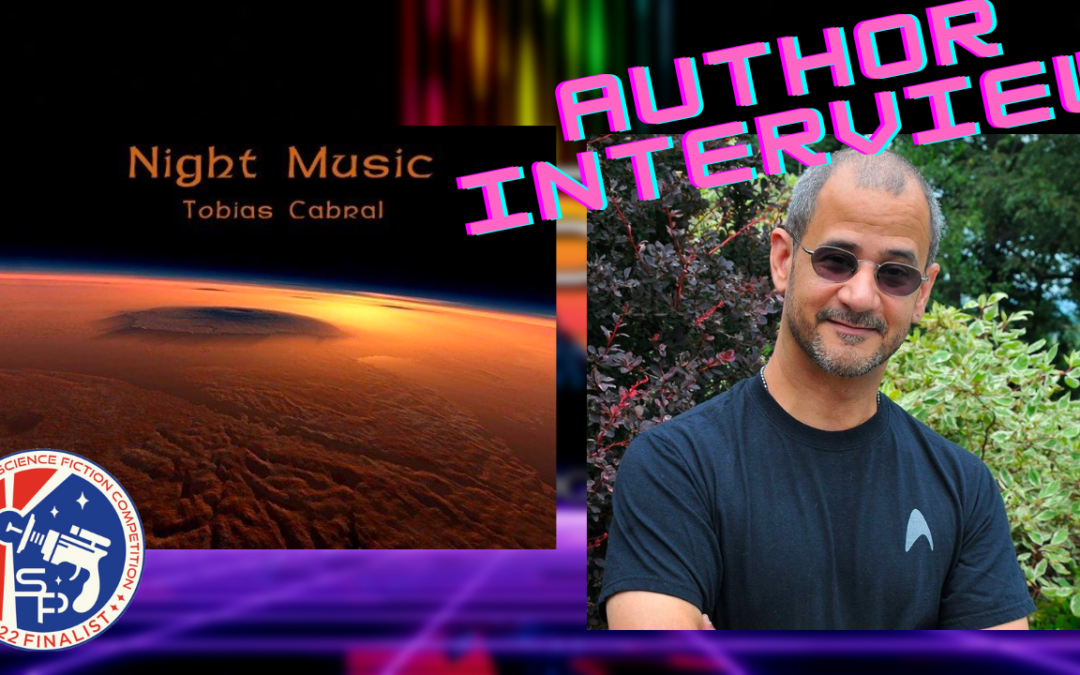MEET THE SPSFC2 FINALIST!
A special interview with Tobias Cabral!

Name and where are you from? (specific location is optional)
I’m Tobias Cabral, originally from NYC. Moved to PA to get my Doctorate (Psy.D.) in psychology at Widener University’s Institute for Graduate Clinical Psychology. Moved back to NYC to work at Mt. Sinai Medical Center…then right back to PA to join a group practice.
How many other books have you self-published?
I self-pubbed a short SF story called “A Night’s Work” (evidently I have a thing for nights). My first novel, New Eyes was initially published by a small press, but after it went under, the book reverted to me and currently is in self-published status.
So, three…so far…
Tell us a little bit about your discovery of science fiction (books, shows, movies) and why did it stick with you?
Saturday mornings during my childhood were a feast of speculative fiction, from cartoons to Kaiju movies, to assorted Abbot and Costello monster-romps. Lost In Space and later Star Trek pretty much cemented my love for the genre, and I quickly exhausted the SF section at the Queens Public Library well before I was halfway through elementary school!
My 11th birthday present was to sit through three consecutive showings of a movie called Star Wars (not yet A New Hope!).
It was the sense of Wonder that hooked me, the possibilities (and perils!) of the human drive to explore.
That’s never left me!
What/who made you want to become an author?
I once heard, “Scratch an avid reader and you’ll find an aspiring writer.” In my case, it wasn’t that deep a scratch. By 7th grade, I’d already started (though alas never finished) at least three novels and gods know how many short stories!
Thing is, I was always creating stories for myself that lay beyond the frames of my favorite books and shows. So eventually, I started making my own frames.
What elements do you feel makes your book unique’?![Night Music by [Tobias Cabral]](https://m.media-amazon.com/images/I/51KyZmQhzqL.jpg)
My Doctoral Dissertation (Nested Systems: Evolving Models of Embodied Psychotherapy) was a conceptual work that strove to integrate Chaos/Complexity Theory (about which I am absurdly passionate) into a meta-model of more traditional psychological theories and practices.
When I embarked on writing Night Music, I used my Shrink-Fu to create faux psychological profiles for two of the main characters (Seth and Nadia), fearing that I’d make the standard rookie mistake and make everyone talk like me. So I wildly over-functioned for the task at hand. As a result, they are very different people from me (except that they use language well and love what they do…but their responses to stress and approaches to relationships are very divergent from mine).
In short order it was also clear to me that Complexity theory had to be in the mix…so it is!
What are some themes or ideas you like to explore in your writing? What may have inspired these?
It appears I cannot help but write about the importance of connections and communities (“Found Family”). Inductively assessing the themes and arcs in essentially everything I’ve written, this motif is persistently present.
This probably reflects some of the same personality variables which drew me into the profession of psychology (which, in turn, is reflected in what my wife often observes: I’m the guy who somehow always ends up engaged in weirdly Substantive conversations with an endless succession of eccentric strangers!).
What are some of your favorite tropes and how do you explore these in your writing?
I quite like the trope of the quirky outsider, the observer of absurdity who comments on things from a Meta perspective which is intermittently irksome to the people around them. I seem to gravitate (no pun intended) to situations that unexpectedly vindicate these off-kilter frames of reference (further irritating the people who might’ve scoffed at them initially!).
What’s something about your book we might not get from the blurb?
The sheer, ridiculous amount of research that went into it! In 1998 I was watching a bio of Harlan Ellison, and how he defended his proposition that “Writers WRITE” by sitting in a bookstore window with a typewriter, taking story suggestions on slips of paper, and having a finished story by closing time.
It shamed me.
So, I started with a picture (a guy in a small spacecraft in LEO, listening to Mozart), and riffed on this.
About two years later, I’d read uncounted scientific articles, as well as Robert Zubrin’s The Case For Mars, attended The Mars Society’s Toronto convention in 2000 CE, and become a fierce advocate for Mars colonization and private space development.
This book is essentially both the impetus and the product of a Dominant Life Passion!
What was your path or decision to self-publish? Had you queried for publishers or planned self-publish?
I submitted Night Music to literally every Pro and Semi-Pro ‘zine I could find on the internet. I accumulated enough rejection letters to wallpaper my apartment. This process took a few years (turnaround times and proscriptions against simultaneous submissions being what they were).
Defeated and exhausted, I let it lie fallow for some years, till Amazon made self-publication a Thing. So I cobbled together an admittedly-lackluster cover and threw it out there.
What’s something you’ve learned about the self-publishing process?
It is a remarkably effective means to achieve a level of functional invisibility that would be the envy of Romulan engineers and Elvish cloak-weavers the Multiverse across!
What is one thing that you love about the current state of Science Fiction and what is one thing that you wish you saw more of?
I LOVE how SF is becoming more diverse, including more voices both IRL and In-Universe. I eagerly anticipate seeing more and more of this (and contributing to it, myself).
E.g., one of my protagonists in New Eyes is Dominican (my heritage: I was born in Brooklyn but both of my parents hail from the DR). It was a lot of fun to infuse the narrative with familiar ‘Dominicanisms’ from my personal history (he–Gaspar–talks a lot like my late, lamented father).
What’s up next for you as a writer?
I am very much looking forward to continuing to populate a sprawling alt-future timeline which began with my co-author’s and my novella, The Source: In the Line of Duty, and continues in Mechanical Error, New Eyes, etc.
His and my visions diverged, but that’s not a problem in SF: I just created an Alt-Alt timeline, which has room for a great many stories yet to be told.
Specifically, I use androids as stand-ins for various disenfranchised groups (they’re Citizens on Mars, but Property on Earth…).
Twitter: https://twitter.com/cabral_psyd
Amazon link: https://www.amazon.com/stores/author/B00C91WUVK?ingress=0&visitId=69442366-f0db-4d40-83ab-9a2ae38e44fa

